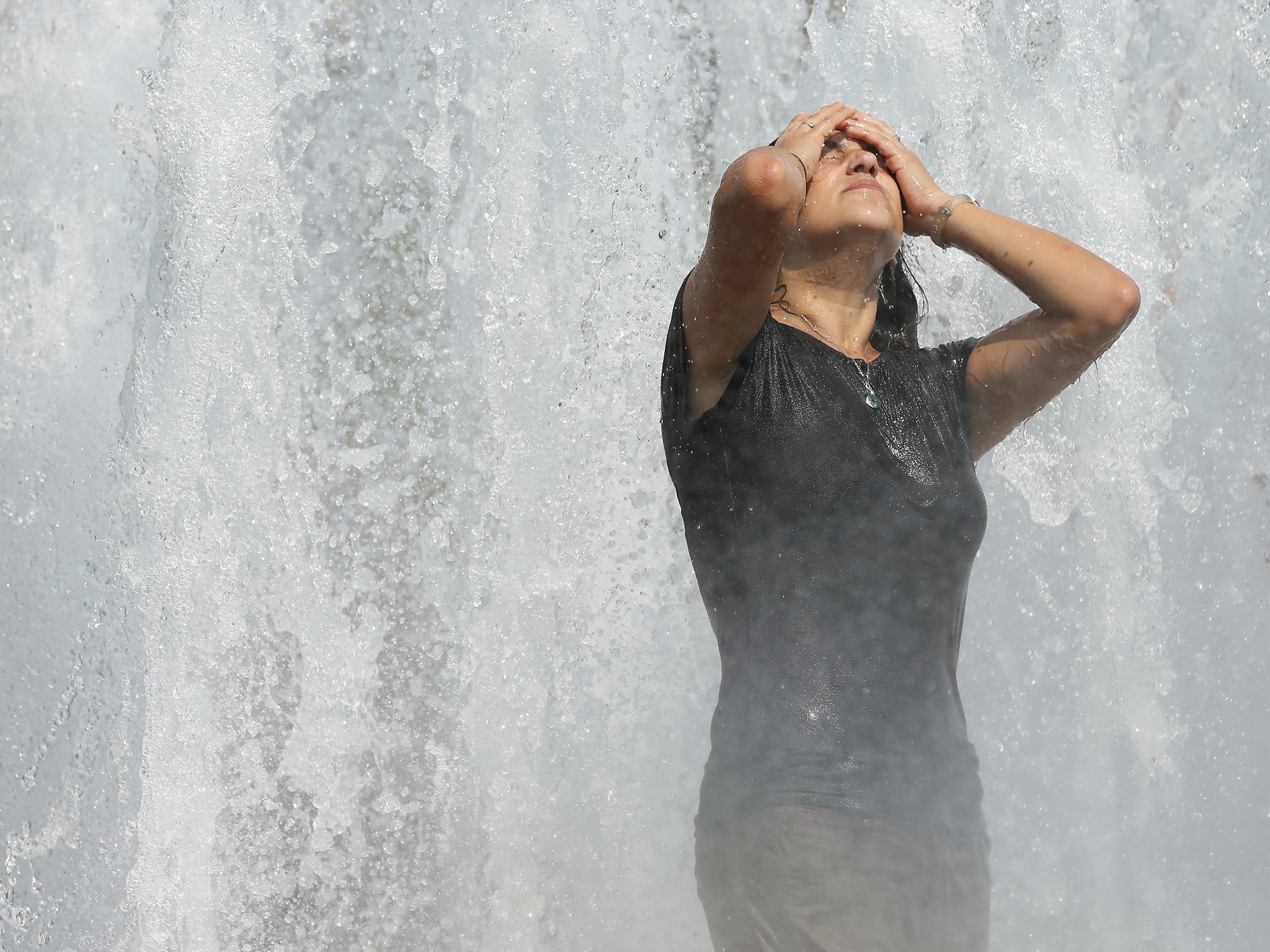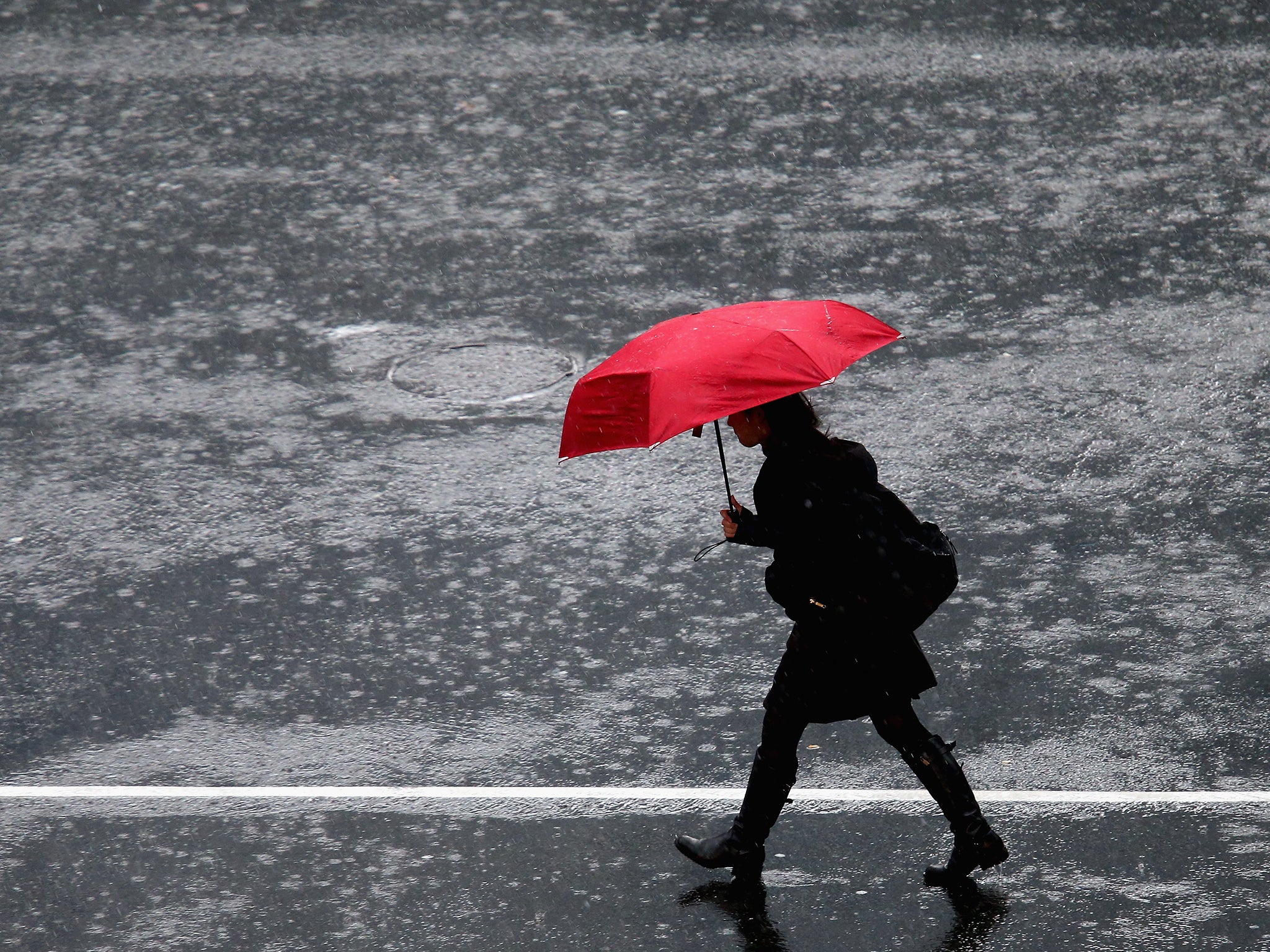Three-quarters of extremely hot days influenced by man-made global warming, scientists say
'The risk of heat-related premature deaths has already increased and it will very likely starkly increase further in the future'

Your support helps us to tell the story
From reproductive rights to climate change to Big Tech, The Independent is on the ground when the story is developing. Whether it's investigating the financials of Elon Musk's pro-Trump PAC or producing our latest documentary, 'The A Word', which shines a light on the American women fighting for reproductive rights, we know how important it is to parse out the facts from the messaging.
At such a critical moment in US history, we need reporters on the ground. Your donation allows us to keep sending journalists to speak to both sides of the story.
The Independent is trusted by Americans across the entire political spectrum. And unlike many other quality news outlets, we choose not to lock Americans out of our reporting and analysis with paywalls. We believe quality journalism should be available to everyone, paid for by those who can afford it.
Your support makes all the difference.Three-quarters of the extremely hot days in the world are now being influenced by man-made global warming and nearly one in five days of heavy rainfall are due to human influences on the climate, scientists said.
For the first time, researchers have put figures to the effect on the world’s weather extremes as a result of the extra greenhouse gases such as carbon dioxide that are being put into the atmosphere from the burning of fossil fuels.
By combining the data used by the 25 computer models of the global climate for the period 1901 to 2005, two scientists from Zurich University in Switzerland calculate that 75 per cent of daily heat extremes and 18 per cent of heavy rainfall or snowfall is now being driven by the human activity that has contribute to an increase in global average temperatures of 0.85C over the past century.
Erich Fischer, the study’s lead author, and his colleague Reto Knutt suggested that the rarest and most extreme hot or wet days around the world are likely now to be influenced by the extra warming caused by the addition of carbon dioxide to the atmosphere.
“Climate change doesn’t cause any single weather event in a deterministic sense. But a warmer and moister atmosphere does clearly favour more frequent hot and wet extremes,” Dr Fischer told the journal Nature Climate Change, where the study was published.
They also predict that if global average temperature increase by 2C – the uppermost “safe limit” set by climate scientists – then the proportion of extremes in heat attributed to climate change will increase from 75 per cent to 96 per cent, while the extremes in rainfall will increase from 18 per cent to 40 per cent.
Peter Stott, a climate researcher at the Met Office Hadley Centre, said that as each year passes the evidence for man-made influences on the global climate is mounting, but what has been lacking until now is an assessment of how much more likely extreme hot and wet weather is likely to become.

“The idea that in a 2C world almost half of heavy rainfall events would not have occurred were it not for climate change is a sobering thought for policymakers seeking to mitigate and adapt to climate change,” Dr Stott said in an accompanying editorial in Nature Climate Change.
Michael Oppenheimer, a climate-policy researcher at Princeton University in New Jersey, told the journal: “The risk of heat-related premature deaths has already increased and it will very likely starkly increase further in the future. Clearly, governments should not only seek to slow global warming, but must also prepare societies for what warming will inevitably happen.”
Join our commenting forum
Join thought-provoking conversations, follow other Independent readers and see their replies
Comments